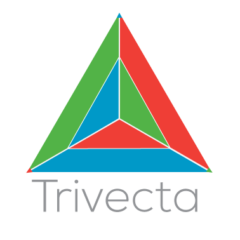AI-driven testing tools are gaining popularity, offering support to testing teams. We have picked three tools that cover different applications of AI in testing, including test case creation, test data generation, and test automation script creation. Please note that the tools we have picked are not endorsements but are representative of options in each category. Trivecta is not affiliated with these companies and does not benefit from reviewing these tools.
1. Functionize
Functionize is an AI-powered software testing platform that automates test case creation and execution. A popular feature of Functionize is its use of Record and Playback testing, a technique that captures user interactions and reproduces them. Analyzing user activities such as searches, queries, and form interactions, the solution creates comprehensive test cases. The platform not only accelerates test case creation but also has auto-maintenance capabilities that enhance its adaptability.
Advantages
- Ease of Use – Functionize offers a user-friendly interface that requires no coding expertise.
- Rapid Test Case Creation – AI-driven test case generation expedites test creation, saving valuable time in the testing cycle.
- Auto maintenance – Functionize automatically identifies the impact of application changes and updates the object repository with the most recent information, eliminating the need for manual intervention by the user.
Disadvantages
- Stability Challenges – Functionize faces stability issues, particularly as it adapts to different software environments.
- Limited Test Coverage – The AI-generated test cases might not cover all possible scenarios, potentially leaving some gaps in test coverage.
- Lack of Flexibility – Functionize’s AI-driven approach restricts users who require more intricate customization.
Pricing
Functionize’s pricing structure is based on the volume of executions per month. The Starter Plan includes 1500 executions / month. For larger teams, the Team Plan offers 6000 executions. Additionally, there is an option for a custom plan catering to specific needs. Please contact Functionize for pricing information.
2. Gretel
Gretel.ai is a platform specializing in generating synthetic data that includes text, images, and numerical data. Synthetic data mimics real-world data without containing actual sensitive information. Gretel.ai helps you share synthetic data without risking privacy breaches.
Advantages
- Customization – Users can fine-tune data to match specific requirements and Gretel.ai covers a wide range of scenarios and edge cases.
- Privacy Protection – Synthetic data mitigates privacy concerns by ensuring real-world data remains untouched during testing.
- Cost Effectiveness – Generating synthetic data is more cost-effective than collecting and labeling real-world data.
Disadvantages
- Inadequate Contextual Understanding – Synthetic data might lack the nuanced context of real data, potentially impacting certain testing scenarios.
- Bias and Unintended Patterns – The AI-driven generation process could inadvertently introduce biases or patterns not present in real-world data.
Pricing
Gretel.ai provides a subscription model with a monthly fee of $295.
3. AutonomIQ
AutonomIQ enables the rapid creation of Selenium scripts by importing plain English test cases. Users can either import a test data file or generate synthetic data. The tool captures screenshots, highlighting each test execution step, and supports script execution across various operating systems. It records execution videos alongside test execution reports.
Advantages
- Codeless Automation: AutonomIQ’s natural language processing engine eliminates the need for complex coding, making automation accessible to a wider audience.
- Efficiency and Speed: The platform’s rapid script generation drastically reduces testing time, enhancing efficiency.
Disadvantages
- Customization Limitations: AutonomIQ might fall short for advanced users who require intricate customization beyond its capabilities.
- Compatibility Challenges: The tool’s compatibility might be limited with certain technologies, potentially restricting its use in diverse environments.
- Limited Integrations: Third-party integrations might be constrained, limiting AutonomIQ’s ability to integrate seamlessly with existing testing environments.
Pricing
The pricing details of AutonomIQ are not currently provided on their website. We recommend you reach out to AutonomIQ directly through their contact channels.
Conclusion
It is evident from this analysis that AI-driven testing tools are still evolving and will over time improve in accuracy, flexibility and results. If there are other tools that you are curious about, please feel free to write to us at info@trivectadigital.com.

